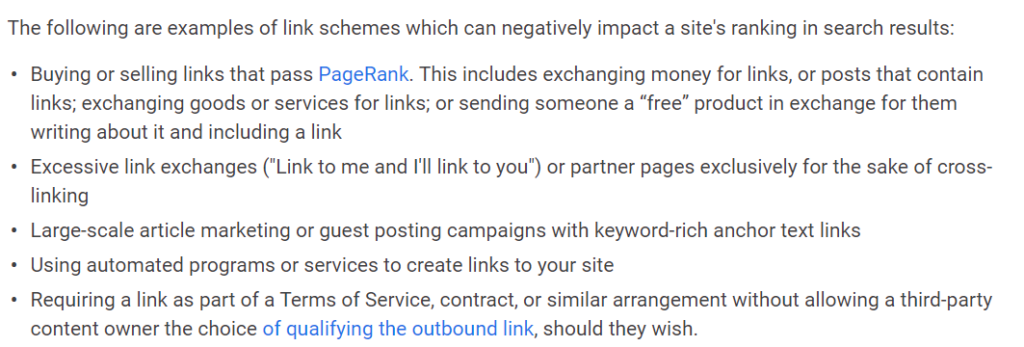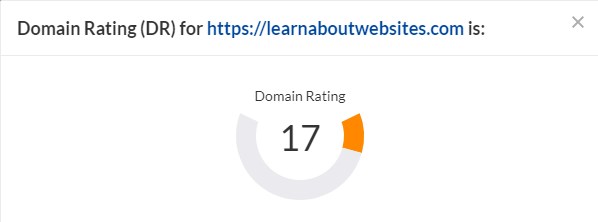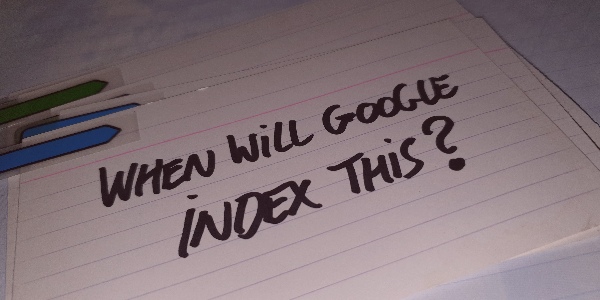How Long Does It Take For a New Website To Get Search Traffic?

I just caught myself checking my website’s traffic, after writing only two blog posts. I just couldn’t resist the urge to check my results in Google Analytics. It seems like I’m only human after all.
So, how long does it take for a new website to get search traffic?
Four days and up to 4 months, after your website has been indexed by search engines. Depending on the amount of content on your website, it’s quality, the demand for it and your website’s authoritativeness. It takes 35 weeks to get to 95% of a post’s potential ranking.
Most bloggers are addicted to reading posts or binge watching tutorials about SEO. They’re looking for a magic pill, which can help rank their blog posts on Google in no time.
There are no magic pills here, instead I’ll share a more effective way of spending your time.
Stop optimizing, start creating quality content instead
The term Search Engine Optimization (SEO) seems a bit weird to me. I mean, think about it. Trying to outsmart search engines in order to rank higher in the search results. I’m in no way an SEO expert, though shouldn’t we be writing to help out other human beings?
I’m writing blog posts in order to educate, entertain and empower people, not robots. I’m probably shooting myself in the foot, according to some SEO experts. Though I’m not planning to do any active link building, as this is actually against Google’s Webmaster Guidelines.

taken on the 24th of October 2020
This doesn’t mean SEO experts are wrong. In the eyes of Google, backlinks are “editorial votes given by choice”. Google even encourages webmasters to get these links organically. So by creating quality content, valuable enough for other publishers to link out to.
There’s a high probability, backlinks are one of Google’s ranking factors. Though there’s just no way to be sure, other than being the creator of Google’s search algorithm. And even then, ranking factors are being updated and improved all the time.
Wouldn’t it make more sense to just abide by their rules and guidelines? Instead of trying to outsmart the 120.000* employees working for Alphabet (Google’s parent company). Your time will be better spend creating quality content, rather than trying to outsmart Google.
* According to Bizjournals
“What is the definition of quality content?” you might ask. Well, there’s no exact definition, as everybody tends to perceive quality differently. You’ll have to get into your average reader’s head; What do they want? What are they searching for? And how can you help them?
Bill Gates already understood the importance of quality content back in 1996. He published an article called “Content is King”, which is now a well know quote. The screenshot below shows his content is king article I found on the internet archive called “WayBack Machine”.

Again I’m not an expert, though I’ve done actual research before I started writing this post. I’ve read multiple articles hosted on authority websites, like Google and Moz. I’ve watched YouTube videos to get opinions from experts in the field.
I’ve taken the time to think about what people might be searching for. I’ve measured up the competition, to see if I could still add value to what’s already out there. Then I took all this research and prioritized it, on what I think will be most helpful for my readers.
I’ve written this blog post, so you could actually find the answer you were looking for. You don’t have to do any more research, as I’ve already handed it to you on a silver platter. This is my definition of quality content.
Though I’ll just have to wait and see if you, as my reader, will agree.
Here’s a quote from Google’s Webmaster Guidelines, where you’ll find their basic principles. Look at their first piece of advice: Create content for humans, not for robots. Be sure to read on, as there’s more you can do to increase your website’s traffic.
1. Make pages primarily for users, not for search engines.
2. Don’t deceive your users.
3. Avoid tricks intended to improve search engine rankings.
A good rule of thumb is whether you’d feel comfortable explaining what you’ve done to a website that competes with you, or to a Google employee. Another useful test is to ask, “Does this help my users? Would I do this if search engines didn’t exist?”4. Think about what makes your website unique, valuable, or engaging. Make your website stand out from others in your field.
Source: https://support.google.com/webmasters/answer/35769
Quality over Quantity?
Although writing quality content will get you halfway, you mustn’t forget quantity. I’m not talking about the length of your posts here. Because when you’re writing thorough quality content, you’ll automatically create long form posts containing a 1000 to 3500 words.
No, I’m talking about the number of posts you publish on your website. Google’s algorithm will be crawling all of your website’s content. Every piece of content will be graded based on their algorithm’s ranking factors. You’ll be gaining authoritativeness as your site grows.

Courtesy of ahrefs’s website authority checker tool
The more quality posts you’ve got on your website, the faster your new posts will get ranked. Google is actually starting to trust your website, as it produces great content. The bigger your site becomes, the more backlinks you’ll get, the higher your domain authority will be.
After getting your website online, you should try to add content as fast as possible. Because having just a single long form post on your website, won’t give Google enough information to go on.
It will take some time before Google starts testing the content on your website. If you have multiple pieces entering this testing phase, you’ll have a better chance of gaining traction. When someone reads one of your posts and likes it, they will be interested in reading more.
So make sure you actually focus on building out your content during the first few months.
Human Search Optimization
Let’s start off with a little experiment. Can you guess Google’s purpose? You won’t be surprised, when I tell you Google is making the majority of its money through advertising. Well, selling ad placements to be exact.
We’ve all seen those ads displayed at the top of the search results. Yet, is this really Google’s purpose? To sell as much advertising placements as possible? Or is there something even more important? Something which makes it possible for them to sell these ad placements.
Let me give you a hint, their mission statement is: “To organize the world’s information and make it universally accessible and useful”. Yep, Google wants their users to have the best, most useful, search experience possible. Did you guess right?
So now the question is: “How can Google make sure, they provide this kind of experience for their users?”. By giving them the most helpful content available on the internet, of course. Though how can they be sure they’re actually serving the most helpful content available?
And that’s the million dollar question, which will help you create the right content. In the next section, I’ve added another experiment that will give you the aha-moment. I’m building up the suspense a little, did you notice?

Let’s focus on Human Search Optimization for now. Imagine it’s your birthday today, and you get to choose one of two presents. Both presents have the same weight and dimensions. Though one of the presents has a luxurious red shiny wrapping and the other one hasn’t.
Which of the presents would you choose? My money is on the one with the luxury wrapping. This is actually a metaphor for your blog post’s title and meta description. When your page shows op in Google’s search results, make sure yours has the luxury wrapping.
This is the one part where Google lets you influence the way their search results look. Create a specific enough title that people want to click on. Add information in the meta description, which tells you’re potential visiter what to expect. Don’t abuse this opportunity though.
Make sure you also make yourself acquainted with Google’s Developer Guidelines. Then create that quality content, the world is craving. Make sure you check out Google’s Search Algorithm Dilemma below. I think this will help you create better content.
Google’s Search Algorithm Dilemma
Imagine you are Google, and there are two web pages with a similar title. After crawling both pages you learn page A contains 500 words and page B contains 1500 words. Which of these pages would you give the number one ranking to?
Probably the one containing most words, right? Web pages that contain more words will probably provide a more thorough answer. This will most likely be a more helpful piece of content than page A.
As time goes by, technology gets more sophisticated. You’re now able to capture even more data about these pages, and notice something peculiar. Around 90% of page B’s visitors hit the back button and visit Page A, instead of visiting other pages.
Based on the available information, people probably prefer to read page A. So the most logical step, would be to switch up their rankings, right? Though there’s another datapoint I haven’t told you about yet.
People who visit page B, stay there for at least 10 minutes. People who visit page A, stay there for 7 seconds on average and then close their browser. Now that you know about this, would you still change up the rankings?
This is the exact dilemma Google faces each and every day.

In the early days, people took advantage of “flaws” within Google’s algorithm. They found creative ways to use the algorithm to their advantage. To give you a few examples: keyword stuffing, link farms, spamdexing, and so on.
You can’t actually blame these creative types for doing so. Yet, they were in for a rude awakening when Google updated their algorithm. Many of them lost their entire source of traffic at the flip of a switch.
Let this be a lesson to you; Using shady tactics will eventually come and bite you.
Google is trying to determine which page contains the most useful content. Their algorithm checks millions of pages and needs to figure out which one is the best. Over time they have drastically improved their ranking algorithm to recognise quality content.
Now just to make things very clear, I’m not an SEO expert. Though I’m guessing of the 200 ranking factors, everybody is talking about, some of them will be based on human behaviour. Things like:
- Time on page
- Time on website
- Scrolling
- Downloading
- Back button
- Links Clicked
- and so on
Keeping you’re visitor engaged with your content is crucial. And there’s only one magic pill out there: Writing quality content aka writing the most helpful post on the internet.
Key Takeaways
- Get up to speed on Google’s Webmaster & Developer Guidelines
- Then stop consuming and start creating
- Create high quality content for humans
- Create the most helpful content on the internet
- Focus on creating multiple posts fast
- Don’t build backlinks, earn them
- Keep your visitors engaged


